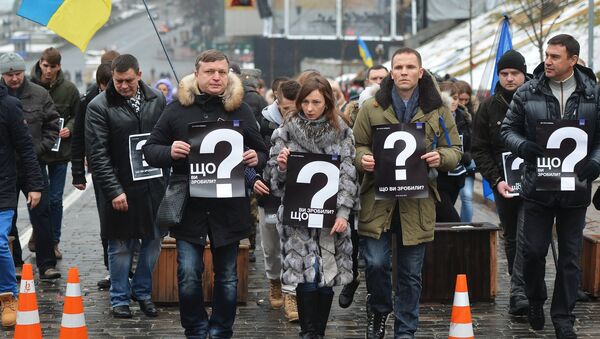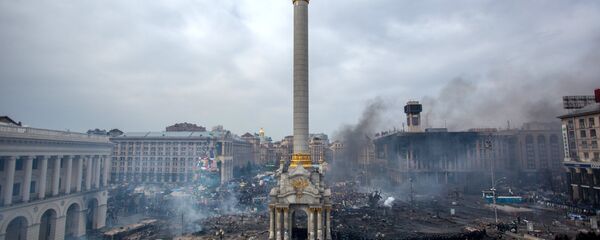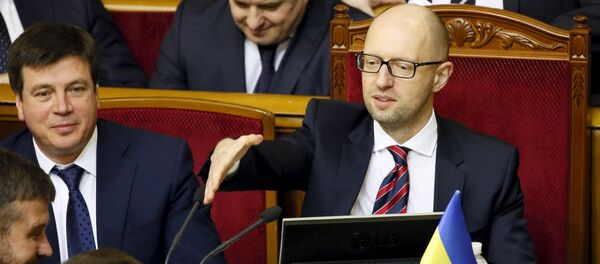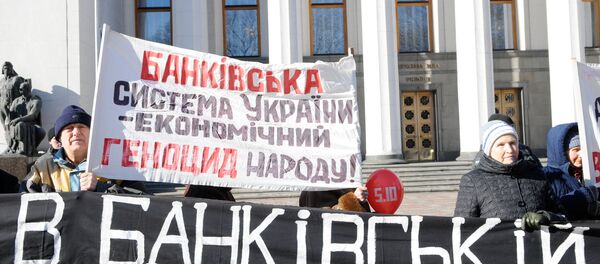"The mood in revolutionary Kiev in late February 2014 was one of euphoria," Spiegel contributor Moritz Gathmann, who reported from the Ukrainian capital during the 2014 protests, recalls.
"The victims were soon dubbed the 'Heavenly Hundred'. This was the high price for the victory, which gave [supporters] hope that this time, things would be different from the bloodless Orange Revolution of 2004. At that time, the victors soon began a campaign of trench warfare against one another. The people were disappointed, the country plunged into stagnation, and in 2010 the once-vanquished Yanukovych came back to the presidential palace."
Today, Gathmann notes, people are once again disenchanted in the promises of the revolutionaries. "'The Heavenly Hundred gave their lives for nothing' — this is a sentiment one hears in Ukraine these days. This is the disappointed commentary on the reality facing Ukraine."
"In the weeks leading up to the anniversary, Ukrainians have again had to recognize that oligarchs and politicians are in league with one another, using their power not in the country's interests, but with a view to divide the economy up amongst themselves: Who will control the gas industry? Who will control the export of uranium? Who will control the seaport in Odessa? These are the questions that the country's elite is actually interested in."
At the same time, Gathmann says, "the political parties formed after the revolution are a case of false labeling. The oligarchs continue to control groups of parliamentary MPs, their voices serving as the 'currency' with which their political business is paid for. This has been illustrated perfectly by the current parliamentary crisis."
"The West," for its part, "refused for a long time to call a spade a spade." After all, many argued, "Ukraine had been fighting against Russian-supported separatists, and for the preservation of its territorial integrity. However, the tough reaction by Washington, Berlin and Paris to the recent ministerial resignations indicates that two years on, the West's patience is at its end."
In contemporary Ukraine, "volunteerism flourishes, with hundreds of thousands of people helping soldiers at the front, sick children and the elderly. There are organizations involved in exposing corrupt officials and politicians, and in making critical evaluations of the reform process." By the same token, "there are also radical groups such as the Right Sector, which march through the streets, shout 'Glory to Ukraine' and threaten a new Maidan."
Ultimately, Gathmann writes, "volunteer culture is a continuation of the revolution by other means: the hundreds of thousands of people who came to the center of Kiev came not only to demonstrate. They made sandwiches, prepared tea, stood guard at night, threw Molotov cocktails and played music," all of which, the journalist says, was voluntary.
"But such voluntarism a state does not make. So long as parties, government institutions and television channels remain tools in the hands of oligarchs, the country will not change. Two years on, the political elite's memory of the Heavenly Hundred, and of the fact that the previous regime had to pack its bags in a panic and flee the country, is obviously no longer that fresh," the journalist concludes.





